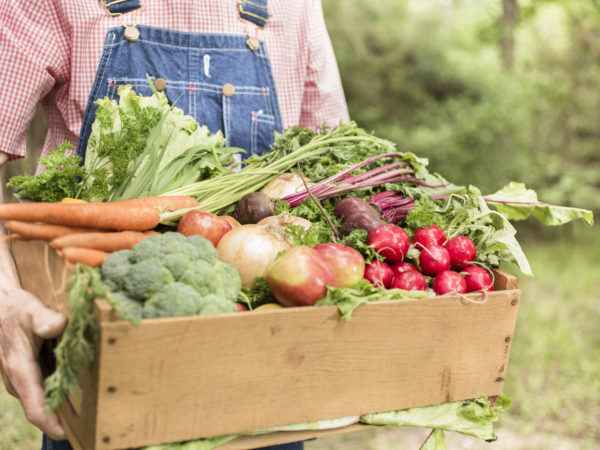Which Is Better: Conventional Or Organic Farming?
How should I respond to people who argue that conventional farming is more efficient and can feed the world better than organic farming?
Andrew Weil, M.D. | January 10, 2012

I’m glad you asked this question because I’ve just read a report on a 30-year-study that compared conventional and organic farming methods. Results show that organic farming outperformed conventional methods right down the line in comparisons ranging from crop yields to farm profits.
Initiated in 1981 by the Rodale Institute, the side-by-side comparison of organic and conventional farming methods found that organic farming is the "healthiest and safest way to feed the world, provide much-needed jobs, reduce our greenhouse gas emissions and protect precious natural resources," according to a statement from Mark "Coach" Smallwood, executive director of the Rodale Institute that accompanied the study’s release.
The study focused on corn and soybeans because so much land is now being utilized for the production of these two crops. In 2004, wheat was added to the mix. Here are some of the most important findings:
- Organic farming yields matched or surpassed conventional yields.
- In years of drought, organic yields outperformed conventional ones. In fact, organic corn yields were 31 percent higher than conventional ones during droughts.
- Organic farming is more sustainable because its methods build rather than deplete soil organic matter. Soil health increased in the organic systems studied but remained unchanged in conventional ones.
- Organic farming uses 45 percent less energy.
- Conventional agricultural systems produce 40 percent more greenhouse gases.
- Organic farming was nearly three times more profitable than conventional farming. Between 2008 and 2010 the economic data collected showed that an average net return per acre per year for organic systems of $558 compared to $190 for conventional ones. This amount reflects, in part, the increased demand for organically grown food and subsequently higher cost to consumers.
Beyond all that, earlier studies have shown that organically grown fruits and vegetables appear to have higher antioxidant levels than conventionally grown foods. And we know that organic crops are raised without the chemical pesticides implicated in human and animal cancers, nervous system disorders and other serious diseases.
I think the Rodale Institute findings go a long way to refute some of the most persistent myths about organic farming – that farmers lose money, that yields are lower, and that management practices are more expensive.
The Institute has announced that the trial will continue by focusing on nutrition and human health in an effort to demonstrate that organic farming can not only feed the world but can improve health. I hope that those results prove as persuasive as the current findings.
Andrew Weil, M.D.










